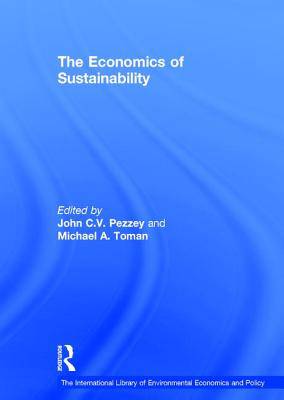
- Afhalen na 1 uur in een winkel met voorraad
- Gratis thuislevering in België vanaf € 30
- Ruim aanbod met 7 miljoen producten
- Afhalen na 1 uur in een winkel met voorraad
- Gratis thuislevering in België vanaf € 30
- Ruim aanbod met 7 miljoen producten
Zoeken
Omschrijving
Before the late 1980s, when the ideas of sustainability and sustainable development to the forefront of public debate, conventional, neo-classical economic thinking about development and growth had rarely given any consideration to the needs of future generations, or the sustainability of natural resource use. Defining sustainability broadly as intergenerational fairness in the long-term decision making of a whole society, and using established economic concepts, this selection of refereed journal articles brings a famously ill-defined concept into sharp focus, providing academics at all levels with a formidable research tool. Spanning thirty years of the most important philosophical, theoretical and empirical contributions from both critics and defenders of neo-classical assumptions and methods of economic analysis, this focused collection of papers constitutes a unique, balanced resource on the full range of intellectual debates surrounding the economics of sustainability.
Specificaties
Betrokkenen
- Auteur(s):
- Uitgeverij:
Inhoud
- Aantal bladzijden:
- 424
- Taal:
- Engels
- Reeks:
Eigenschappen
- Productcode (EAN):
- 9780754621775
- Verschijningsdatum:
- 25/07/2002
- Uitvoering:
- Hardcover
- Formaat:
- Genaaid
- Afmetingen:
- 168 mm x 245 mm
- Gewicht:
- 879 g

Alleen bij Standaard Boekhandel
+ 594 punten op je klantenkaart van Standaard Boekhandel
Beoordelingen
We publiceren alleen reviews die voldoen aan de voorwaarden voor reviews. Bekijk onze voorwaarden voor reviews.











